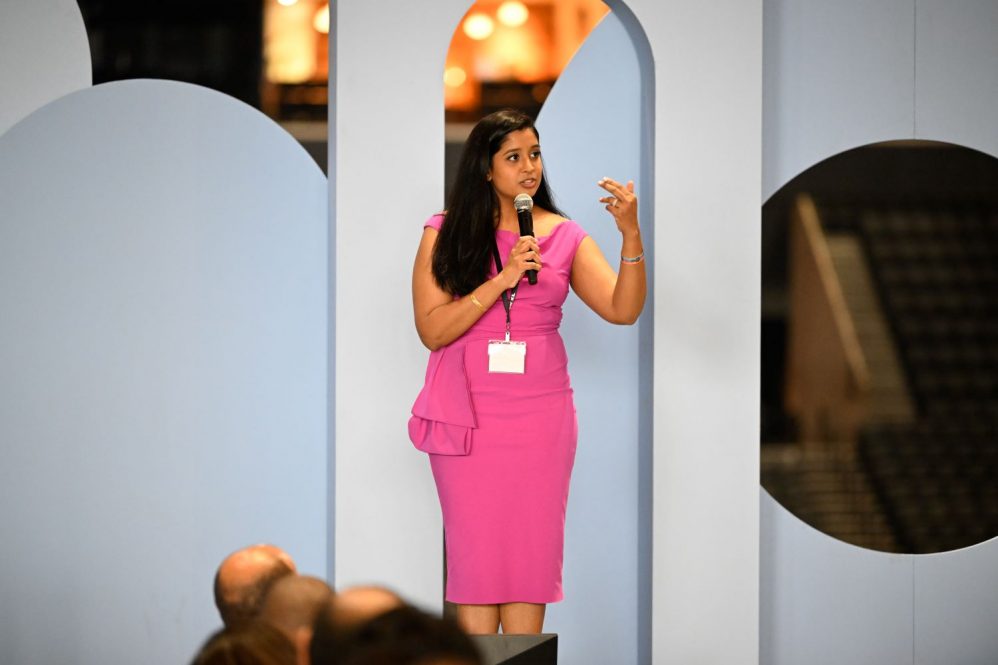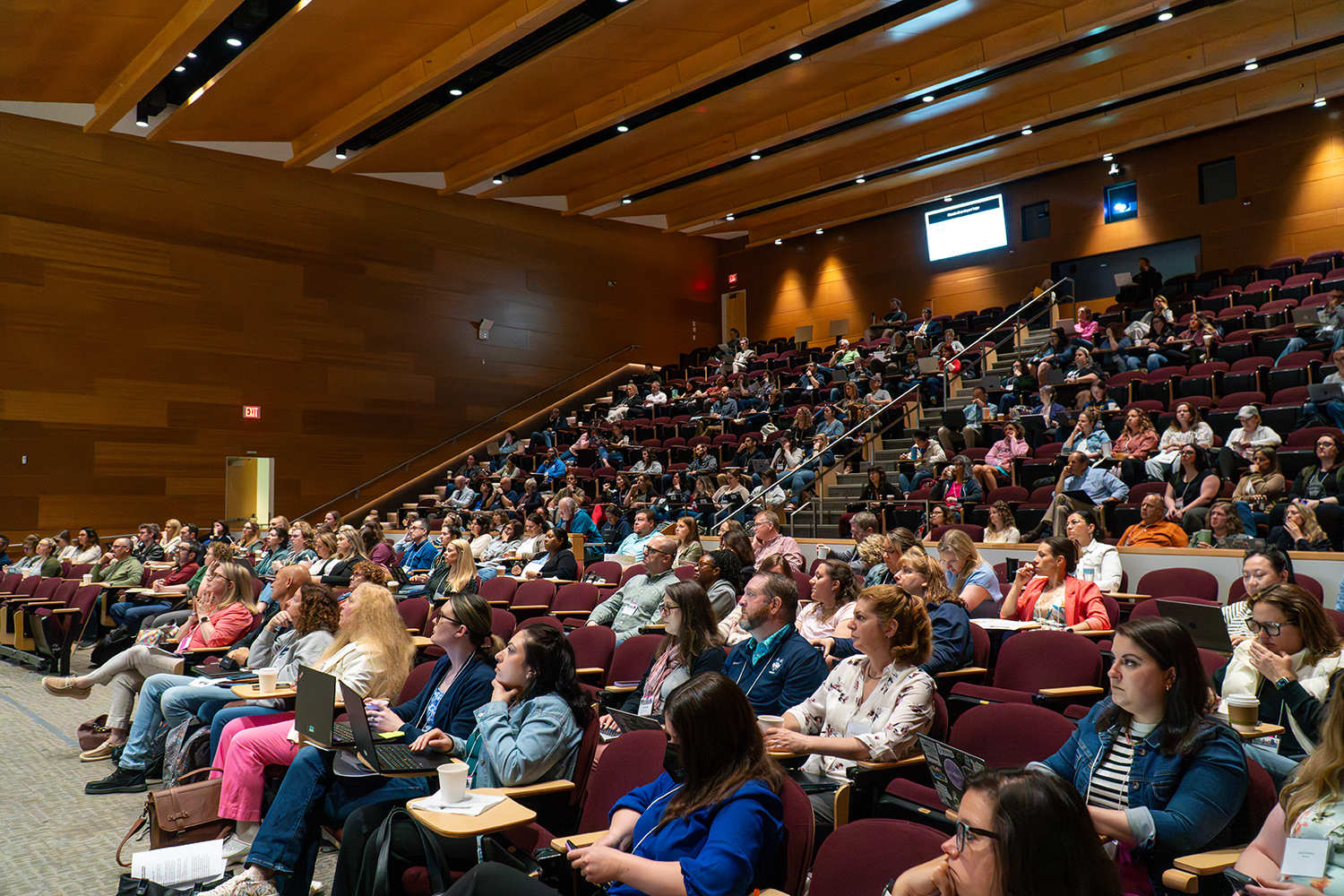Sumia (Hussain) Shaikh ‘15 (CAHNR) has taken her education in allied health sciences in an unexpected direction: venture capitalism.
“I’ve always been driven to make an outsized impact. From beginning as a public health major, to trying different career paths, I discovered the power that storytelling and marketing can play in amplifying impact,” Shaikh says.
When Shaikh came to UConn, she knew she was interested in public health due to its systems-level, holistic approach to improving the health of populations, leading her to major in allied health sciences with a concentration in public health and health promotion.
But Shaikh’s interests were always wide-ranging and driven by curiosity, and she also pursued minors in human rights and political science.
On a summer social entrepreneurship study abroad trip to Guatemala, Shaikh helped women entrepreneurs sell products that had an impact on public health, like clean-burning stoves and protective eyewear and learned about the impact of business support in changing health outcomes. Seeing how entrepreneurship, health, and social justice could work together inspired Shaikh to pursue a career in business.
“When I graduated, I was really interested in social entrepreneurship. I knew I loved studying public health, but I was not sure if a traditional public health job was the best next step for me. I remember applying to over 75 jobs the summer I graduated. I was nervous and unsure about where I would land, but I was also confident in my ability to figure it out because I knew I gained a lot of skills from being a student leader at UConn,” Shaikh says.
As an undergraduate, Shaikh was highly involved. She led UConn Spring Weekend, co-founded UConn Empower, a group that did project-based consulting for nonprofits globally, led the Asian American Cultural Center’s Homecoming efforts, served on the Pan Asian Council, and was a College of Agriculture, Health and Natural Resources (CAHNR) ambassador.
Shaikh says the skills she learned from her allied health major and student activities helped her transition to a career in the world of startups and venture capital (VC). Allied health program management, health care business management, and health care communication courses taught Shaikh how to run a program and how to manage a budget and critical skills like “active listening.” These skills are useful in any field, she says.
“The holistic way that degree taught me how to navigate certain parts of the world was so useful,” Shaikh says. “It gave me language I needed to ask the questions and use my curiosity in a way that was productive.”
In her first job post-UConn, Shaikh worked for MassChallenge helping accelerate hundreds of startups in the summer of 2015 and focusing on program management and partnerships with large corporations, foundations, and government clients interested in supporting innovation. Shaikh also support underrepresented founders by running entrepreneurship bootcamps and supported her company while it launched a program to support digital health startups. From this experience, Shaikh learned about how she could use her knowledge about the allied health field and public health to further health innovation and equity in entrepreneurship.
In 2020, one of her mentors from MassChallenge reached out to Shaikh, who was working for a boutique brand strategy consulting firm at the time, saying he was working on a new initiative she may be interested in called Visible Hands. Excited about what they were building, she joined as an advisor that summer. Three years later, Shaikh is still working there.
Shaikh currently leads brand and marketing at Visible Hands, a VC firm that funds and empowers underrepresented founders launching high-growth startups. Visible Hands helps underrepresented founders by providing them with the resources they need at the earliest stages of company building.
While Shaikh had the opportunity to work in many facets of startup support in VC at Visible Hands since starting as the firm’s founding chief of staff, she says she enjoyed working on branding and marketing the most.
“It’s answering very basic questions, like who you are, what you do, why you do it, how you do it, and what sets you apart,” Shaikh says. “But I do think the fundamental part of branding and marketing that excites me most is the creative nature of the role and it can lead to such transformative impact especially when it comes to underrepresented founders.”
The social justice approach at the center of Visible Hands’ mission is critical for Shaikh, as only a sliver of venture capital funding goes to women and people of color. In 2020, women received just 2.3% of venture capital funding. Less than 3% of venture capital-backed founders are Black or Hispanic.
“In VC, there are not many people who look like me or have the same background as me. I think it’s important for me to learn, lead, and help bring others along this journey who want to work with startups or in VC. I also think it’s important for me to share my unconventional path to VC,” Shaikh says. “Because it’s just harder to see yourself going down a path where no one who looks like you or comes from your background has been before. I also love working with underrepresented founders because they inspire me. When I look at them, I think, well maybe I can be an entrepreneur one day too.”
Shaikh describes her career track as walking through a garden without knowing what you want to make for dinner, grabbing assorted fruits, herbs, and vegetables along the way to get a taste of what is available. By sampling from the “garden,” (or her various roles across her career) she was able to figure out what she enjoyed doing and then found a new career that allowed her to use those skills.
Shaikh encourages current students to take this approach and extend their “sampling period” for as long as they can.
“I sampled a lot of different roles and projects throughout my career. That mixed bag of everything, I think, helped me figure out how I wanted to make an impact in my career,” Shaikh says. “I tried to hone in on what really gives me energy and engagement and how can I find a way to make it match with my values and purpose.”
Follow UConn CAHNR on social media



